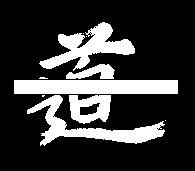RB 10/24
God’s elusiveness in language is, paradoxically, observed through language itself. Logocentricism won’t have it any other way. “Without language, thought is a vague, uncharted nebula” (Ferdinand de Saussure 5). Language, however, is unstable – limited by limitless meanings, each listener creating his or her own meaning by the subsequent words to which he or she uniquely defers in order to create that meaning. Although language falls short of capturing God, we’d be hard-pressed to conceive of conceiving God without language. That’s why even though language falls short, books like The Bible are profound.
Tao Te Ching begins with a sort of disclaimer.
The Tao that can be trodden
is not the enduring and unchanging Tao.
The name that can be named
is not the enduring and unchanging Name. [1]
is not the enduring and unchanging Tao.
The name that can be named
is not the enduring and unchanging Name. [1]
Tao Te Ching informs the reader up front that even though its purpose is to describe the Tao, the Tao is beyond description. The Tao is limited by the word Tao. What the disclaimer does is directs the reader’s deferment of the text toward language’s trace of the unknown, which ultimately leads back to the Unknown, whose meaning cannot be deferred. The entire text is now under erasure.
The above passage from Tao Te Ching is but one English translation of the original manuscript.
The tao that can be described
is not the eternal Tao.
The name that can be spoken
is not the eternal Name. [2]
That Tao Te Ching has been translated many times helps illustrate its own point: the text’s paradoxical nature of being both a necessity to convey its message and an inadequate description of that message.
In another translation of Tao Te Ching, the translator has interpreted Tao not as Name, but as Way.
“The trace is sheltered and thus dissimulated in these names; it does not appear in the text as the trace ‘itself’” (


1 Comments:
That was great to read RB - thanks for bringing things into focus with the Tao...
joh
Post a Comment
<< Home